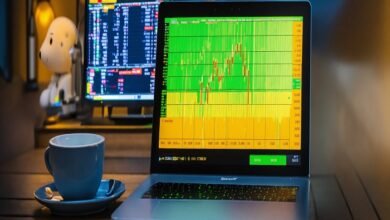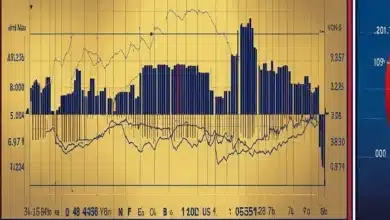
Forex trading, or foreign exchange trading, is the process of buying and selling currencies to make a profit. It is a popular financial activity that has drawn interest from all around the world. However, for beginners, navigating the complexities of the forex market can be daunting. This guide, “Forex Trading for Dummies,” aims to simplify the fundamentals of forex trading, providing you with the essential knowledge to start trading confidently.
What is Forex Trading?
Forex trading, also known as foreign exchange trading or currency trading, involves the exchange of one currency for another in the forex market. It is the largest and most liquid financial market in the world, with an average daily trading volume exceeding $6 trillion. Forex trading for dummies starts with understanding the basics: when you trade forex, you are speculating on the price movements of currency pairs, such as EUR/USD or GBP/JPY.
How Does the Forex Market Work?
The forex market operates 24 hours a day, five days a week, allowing traders to participate at any time. Unlike stock markets, forex trading does not occur on a centralized exchange but rather through a global network of banks, brokers, and financial institutions. For dummies, it’s important to grasp that the forex market is decentralized, meaning that trading occurs over-the-counter (OTC) rather than on a centralized exchange.
Key Forex Trading Terms
Before diving into forex trading, beginners should familiarize themselves with essential terms. Understanding these terms is crucial for dummies who want to make informed trading decisions. Key terms include:
- Pip: The smallest price movement in a currency pair.
- Spread: The difference between the bid and ask price.
- Leverage: The ability to control a large position with a small amount of capital.
- Margin: The amount of money required to open a leveraged position.
The Major Currency Pairs
In forex trading, currencies are traded in pairs. Major currency pairs involve the most traded currencies and include pairs like EUR/USD, USD/JPY, GBP/USD, and USD/CHF. For dummies, it’s essential to focus on major pairs initially, as they offer higher liquidity and tighter spreads, making them more suitable for beginners.
How to Read Forex Quotes
Understanding how to read forex quotes is fundamental for dummies entering the forex market. A forex quote consists of two currencies: the base currency and the quote currency. For example, in the EUR/USD pair, EUR is the base currency, and USD is the quote currency. The quote shows how much of the quote currency is needed to purchase one unit of the base currency. If EUR/USD is quoted at 1.2000, it means 1 EUR equals 1.2000 USD.
Types of Forex Trading Strategies
Forex trading strategies vary widely, catering to different trading styles and risk tolerance levels. For dummies, it’s important to start with simple strategies and gradually explore more complex ones. Common strategies include:
- Scalping: Involves making numerous small trades to capture small price movements.
- Day Trading: Entails opening and closing trades within the same day.
- Swing Trading: Focuses on capturing short- to medium-term price movements.
- Position Trading: Involves holding trades for extended periods, ranging from weeks to months.
Risk Management in Forex Trading
Effective risk management is crucial in forex trading. For dummies, learning to manage risk can prevent significant losses and enhance long-term profitability. Key risk management techniques include:
- Setting Stop-Loss Orders: Automatically close a trade at a predetermined loss level.
- Using Take-Profit Orders: Automatically close a trade when a certain profit level is reached.
- Position Sizing: Determining the appropriate amount of capital to risk on each trade.
Using Forex Trading Platforms
Choosing the right forex trading platform is essential for a smooth trading experience. Popular platforms include MetaTrader 4 (MT4), MetaTrader 5 (MT5), and various proprietary platforms offered by brokers. For dummies, it’s advisable to choose a platform that offers user-friendly features, comprehensive charting tools, and reliable customer support.
Developing a Forex Trading Plan
A solid trading plan is a roadmap to success in forex trading. For dummies, creating a trading plan involves setting clear goals, defining risk tolerance, and establishing criteria for entering and exiting trades. A well-structured plan helps traders stay disciplined and avoid emotional decision-making.
Tips for Successful Forex Trading
To succeed in forex trading, beginners should follow these essential tips:
- Start with a Demo Account: Practice trading without risking real money.
- Educate Yourself: Continuously learn about forex trading through courses, books, and online resources.
- Stay Updated on Market News: Keep track of economic indicators and news events that can impact currency prices.
- Maintain a Trading Journal: Record your trades to analyze performance and identify areas for improvement.
Conclusion
Forex trading for dummies doesn’t have to be overwhelming. By understanding the basics, familiarizing yourself with key terms, and following a disciplined trading approach, you can navigate the forex market with confidence. Remember, continuous learning and practice are essential to becoming a successful forex trader. Use this guide as a starting point and build your knowledge and skills over time.
FAQs
- What is the minimum amount required to start forex trading?
- The minimum amount required varies by broker, but many brokers allow you to start trading with as little as $100.
- Can I make a living from forex trading?
- Yes, it’s possible to make a living from forex trading, but it requires substantial knowledge, experience, and discipline.
- What are the best times to trade forex?
- The best times to trade are during the major market sessions: London, New York, and Tokyo, when trading volume is highest.
- Is forex trading risky?
- Yes, forex trading involves significant risk, and it’s possible to lose more than your initial investment if proper risk management isn’t practiced.
- How can I improve my forex trading skills?
- Improve your skills by continuously learning, practicing with a demo account, keeping a trading journal, and staying updated on market news and trends.





